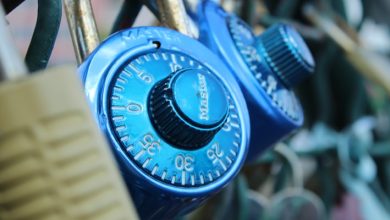How to Choose a Secure Crypto Wallet

- Understanding the importance of security in crypto wallets
- Key factors to consider when choosing a secure crypto wallet
- Types of crypto wallets and their security features
- Comparing hot wallets vs cold wallets for security
- Tips for protecting your crypto assets from theft
- Choosing the right balance between convenience and security in a crypto wallet
Understanding the importance of security in crypto wallets
Understanding the significance of security in crypto wallets is crucial when selecting the right option for safeguarding your digital assets. Cryptocurrency wallets are essential tools for storing, sending, and receiving cryptocurrencies securely. Without proper security measures in place, your funds could be at risk of theft or hacking.
When choosing a crypto wallet, it is important to consider the security features it offers. Look for wallets that provide 2-factor authentication, biometric authentication, and encryption to protect your funds. Additionally, opt for wallets that offer cold storage options, such as hardware wallets, to keep your cryptocurrencies offline and away from potential online threats.
By prioritizing security in your choice of crypto wallet, you can minimize the risk of unauthorized access to your funds and ensure that your investments remain safe and secure. Take the time to research different wallet options and choose one that offers the highest level of security to protect your digital assets effectively.
Key factors to consider when choosing a secure crypto wallet
When selecting a secure crypto wallet, there are several key factors to consider to ensure the safety of your digital assets. It is crucial to prioritize security features to protect your investments from potential threats and risks. Here are some important considerations to keep in mind when choosing a crypto wallet:
1. **Encryption:** Look for a wallet that offers end-to-end encryption to safeguard your private keys and transaction data. Encryption adds an extra layer of security to prevent unauthorized access to your funds.
2. **Two-factor authentication:** Opt for a wallet that supports two-factor authentication (2FA) to add an extra layer of protection to your account. 2FA requires users to provide two different authentication factors to verify their identity before accessing their wallet.
3. **Multi-signature support:** Choose a wallet that supports multi-signature transactions, which require multiple private keys to authorize a transaction. This feature can prevent unauthorized transfers and enhance the security of your funds.
4. **Regular updates:** Ensure that the wallet you choose receives regular updates and security patches to address any vulnerabilities or weaknesses. Regular updates help keep your wallet secure and protect it from emerging threats.
5. **Offline storage:** Consider using a hardware wallet for offline storage of your crypto assets. Hardware wallets are considered one of the most secure options as they store your private keys offline, making them less vulnerable to hacking attacks.
By considering these key factors when choosing a secure crypto wallet, you can protect your digital assets and have peace of mind knowing that your investments are safe and secure.
Types of crypto wallets and their security features
There are various types of crypto wallets available in the market, each with its own unique security features to protect your digital assets. It is essential to understand the different types of wallets and their security mechanisms before choosing one to store your cryptocurrencies.
- Hardware Wallets: Hardware wallets are physical devices that store your private keys offline, making them less vulnerable to hacking attacks. They are considered one of the most secure options for storing cryptocurrencies.
- Software Wallets: Software wallets are applications or programs that can be installed on your computer or mobile device. While convenient to use, they are more susceptible to malware and hacking.
- Online Wallets: Online wallets are cloud-based wallets that can be accessed from any device with an internet connection. However, they are considered less secure as they are prone to cyber attacks.
- Paper Wallets: Paper wallets are a form of cold storage where your private keys are printed on a piece of paper. They are immune to online hacking but can be easily damaged or lost.
- Multisignature Wallets: Multisignature wallets require multiple private keys to authorize a transaction, adding an extra layer of security. They are ideal for businesses or individuals handling large amounts of cryptocurrencies.
When choosing a crypto wallet, consider the level of security you require based on your investment portfolio and risk tolerance. It is recommended to use a combination of different wallets for added security, such as a hardware wallet for long-term storage and a software wallet for daily transactions.
Comparing hot wallets vs cold wallets for security
When it comes to security in the world of cryptocurrency, it is essential to understand the differences between hot wallets and cold wallets. Hot wallets refer to wallets that are connected to the internet, making them more susceptible to hacking and cyber attacks. On the other hand, cold wallets are offline storage solutions that are considered to be more secure because they are not connected to the internet.
Hot wallets are convenient for frequent trading and transactions, as they allow for quick access to your funds. However, this convenience comes at the cost of security. Since hot wallets are connected to the internet, they are more vulnerable to hacking attempts. This makes them a less secure option for storing large amounts of cryptocurrency.
Cold wallets, on the other hand, offer a higher level of security because they are offline and cannot be accessed by hackers. While cold wallets may be less convenient for frequent trading, they are ideal for long-term storage of large amounts of cryptocurrency. By keeping your funds in a cold wallet, you can protect them from online threats and cyber attacks.
Ultimately, the choice between a hot wallet and a cold wallet comes down to your individual needs and preferences. If you prioritize convenience and quick access to your funds, a hot wallet may be the right choice for you. However, if security is your top priority, a cold wallet is the best option for storing your cryptocurrency safely. Consider the risks and benefits of each type of wallet before making a decision to ensure that your funds are protected.
Tips for protecting your crypto assets from theft
When it comes to protecting your cryptocurrency assets from theft, there are several important tips to keep in mind. Here are some key strategies to help safeguard your investments:
- Use a secure and reputable crypto wallet to store your assets. Look for wallets that offer advanced security features such as two-factor authentication and biometric verification.
- Avoid storing large amounts of cryptocurrency on exchanges. Instead, transfer your assets to a secure wallet that you control.
- Be cautious of phishing scams and never share your private keys or seed phrases with anyone. Keep this information stored securely offline.
- Regularly update your wallet software to protect against potential vulnerabilities and security threats.
- Consider using a hardware wallet for an extra layer of security. Hardware wallets store your private keys offline, making them less vulnerable to hacking attacks.
By following these tips and staying vigilant about security best practices, you can help protect your crypto assets from theft and ensure that your investments remain safe and secure.
Choosing the right balance between convenience and security in a crypto wallet
When choosing a crypto wallet, it’s essential to find the right balance between convenience and security. It’s crucial to consider how easily you can access your funds while also ensuring that your assets are protected from potential threats. One way to achieve this balance is by opting for a wallet that offers features like multi-factor authentication and encryption. These security measures can help keep your funds safe while still providing you with the convenience of easily accessing them when needed.
Another factor to consider is the type of wallet you choose. Hardware wallets are known for being highly secure, as they store your private keys offline, making them less vulnerable to hacking attempts. While hardware wallets may be less convenient than online wallets, the extra layer of security they provide can give you peace of mind knowing that your funds are safe.
On the other hand, online wallets are more convenient to use but may be less secure than hardware wallets. If you opt for an online wallet, make sure to choose one that has a good reputation for security and has features like two-factor authentication to add an extra layer of protection.
Ultimately, the right balance between convenience and security will depend on your individual needs and risk tolerance. It’s essential to weigh the pros and cons of each type of wallet and choose one that aligns with your priorities. By finding the right balance, you can enjoy the convenience of easily accessing your funds while also ensuring that they are safe and secure.



